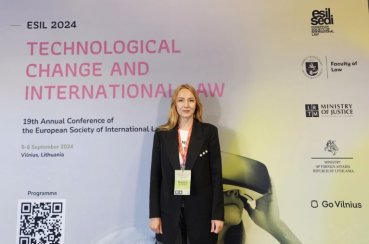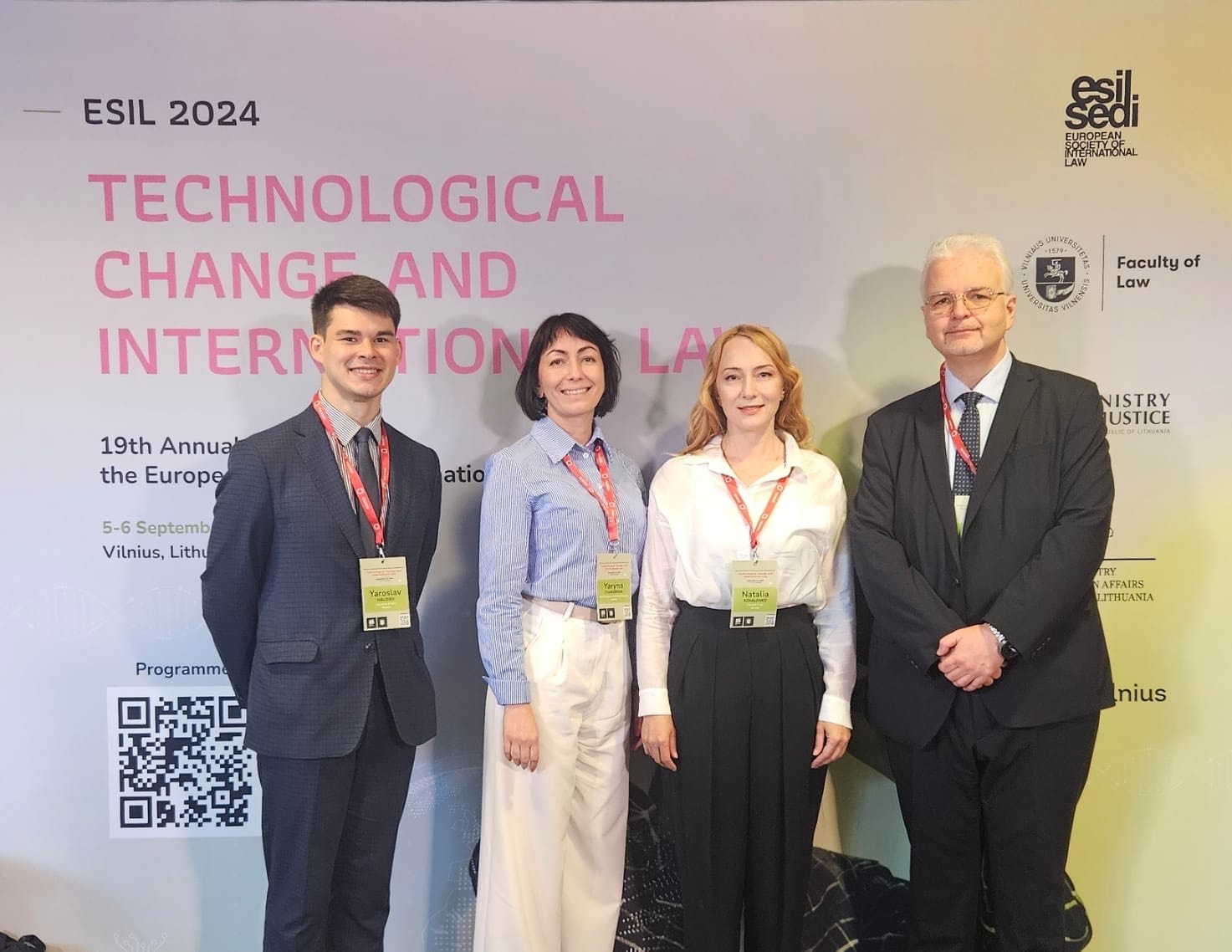Contact center of the Ukrainian Judiciary 044 207-35-46

Judge of the Supreme Court at the Administrative Cassation Court Nataliia Kovalenko took part in the 19th Annual Conference of the European Society of International Law (ESIL), held in Vilnius (Lithuania) with the support of Vilnius University Law School. The theme of this year's conference was "Technological Change and International Law".
The main objective of the event was to explore the multifaceted relationship between technology and international law, in particular to discuss scientific, technological and empirical developments and their potential implications for international law research, teaching and practice.
Simon Chesterman of the National University of Singapore gave the opening and keynote address on 'The Tragedy of AI Governance'. His report highlighted the key factors undermining effective AI governance: the transfer of power from governments to private companies that control the development and implementation of AI, and the reluctance of states to over-regulate the field in order not to stifle innovation. According to the speaker, the tragedy is that those with the most influence over AI regulation are the least interested in it.

The conference discussed key issues such as technologies of racialisation in international law; the need for a new theory of human rights adapted to data management; the impact of technological change on international markets, finance and labour; and the role of digital platforms in undermining democracy. Participants also considered security and surveillance technologies, environmental disasters and their relationship to technology, and critical historical perspectives on the interaction of international law and new technologies.
During the conference, participants had the opportunity to hear from leading experts and participate in interactive sessions on legal issues related to cybersecurity, data protection, artificial intelligence and the regulation of new technologies.
The conference programme included a variety of speeches, panel discussions and workshops aimed at discussing new ideas and gaining practical knowledge for the digital age. This knowledge and approaches will be important for improving international legal regulation in the face of rapid technological change, which will contribute to more effective protection of human rights, economic stability and the strengthening of democratic institutions.